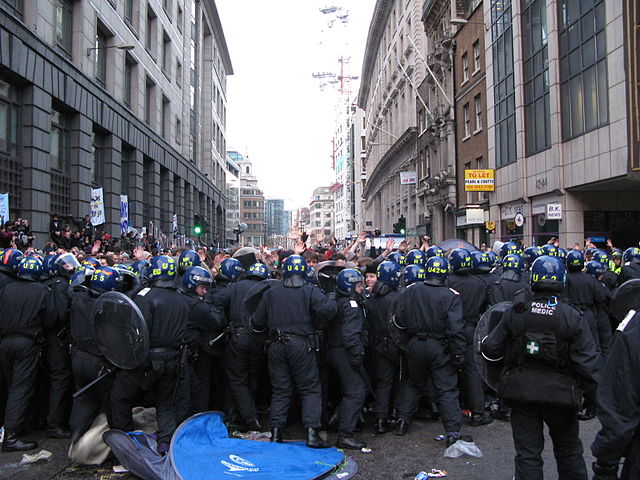Violence talks. Let’s face it, when people sit in streets, hold their banners and shout, a nice newspaper might write an article about them but no one will seriously listen. Violence here is exerting physical force intending to hurt or damage something, not someone. When violence occurs, people listen. This can be seen with the suffragettes and their slogan ‘deeds not words’, the terrorist actions of the African National Party, ANC, under the Apartheid in South Africa and the independence of South Sudan.
Violent protest can be acceptable when you are entirely excluded from the decision making process and when it is violence against an institution or organisation at a political not personal level. You can never kill a political ideal by killing the leader of the movement, but you can make them listen if you damage what belongs to them, their buildings and infrastructure. They will listen because they will be scared of what you could do. Whether we like it or not, when protests escalate to the point that protestors are completely ignored and those in power actively try to discount the protestors, the fight becomes about self-interests. The only way that self-interests can be altered is if they are threatened and shaken by violence.
What’s more, protests are almost always fought on an unequal footing, how can you expect a marginalised group to be shunned by those that they are against without using all protest weapons possible, including violence. The aim of violent protests is to provoke a murderous reaction, just like other protests but with more conviction. When you have no other recourse in which your views can be heard, when you are denied the right to vote, protest or speak out then violence often seems like the only way in which your voice will be heard through your actions. When peaceful protests are shut down and countered with state violence, protestors can be walked over and forgotten.
As in Apartheid South Africa, Mandela realised that all their marches and boycotts would not be listened to until the foundations of the apartheid were shaken. The ANC conducted violence against property, not directly at people, they realised that you can’t negotiate with a dead person.
You many think that this ‘not being able to negotiate with a dead person’ destroys the acceptance of violent protests. However, we live in a world where peace is upheld by violence. States fight with guns for ideals of peace that cannot be slain without violence. And yes, wholeheartedly violence is not the solution to the problem and the protest but it is the trigger, the way to get your voice heard only when all other paths of protests are ignored.
And of course, the protesters on the same side as the violent protesters should not feel forced to follow suit or threatened that the violence would affect them. Violent protests do not de-legitimise peaceful protests; they only add fire to the flame.
Miley Pratt
Image: Wikimedia Commons

